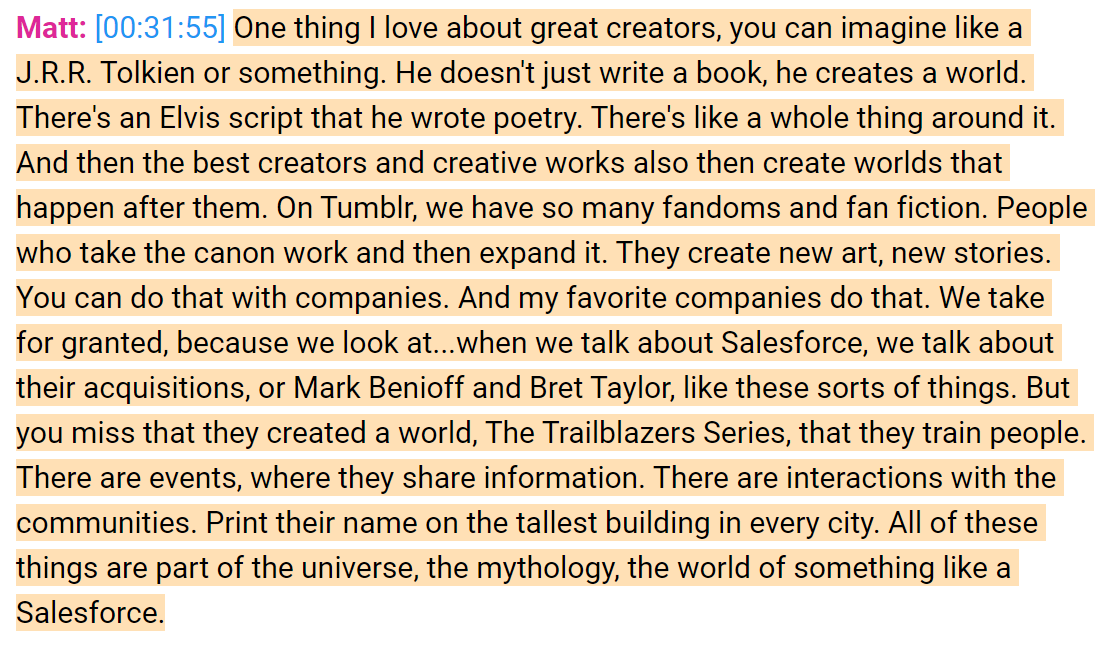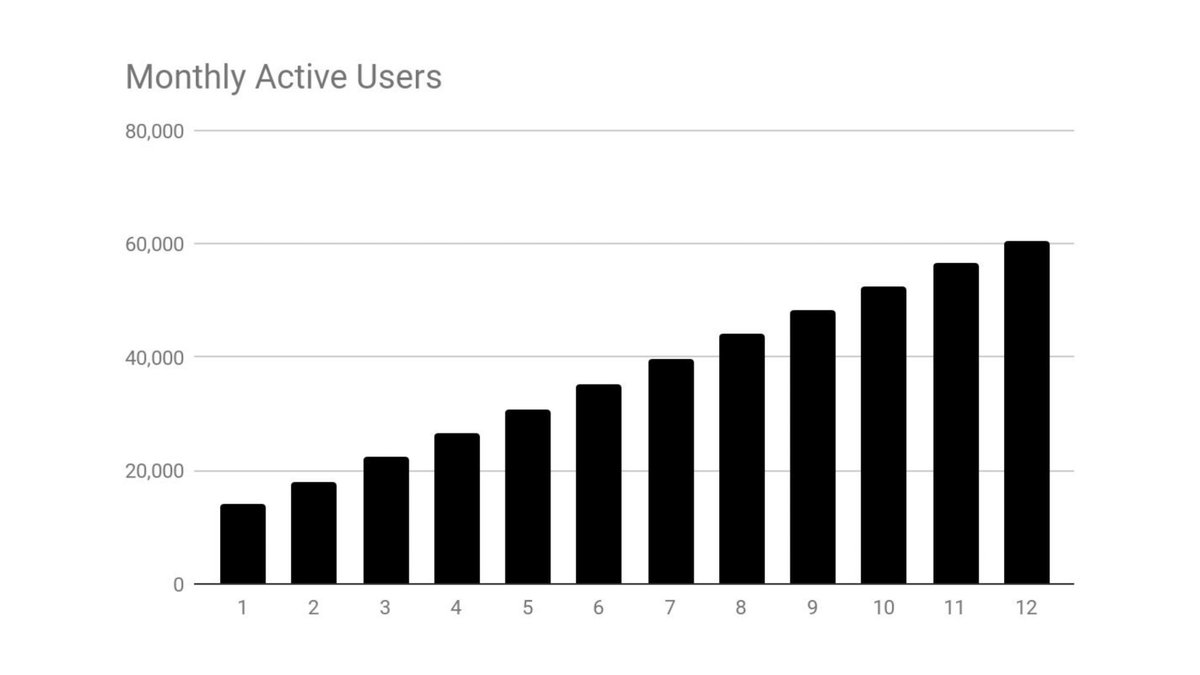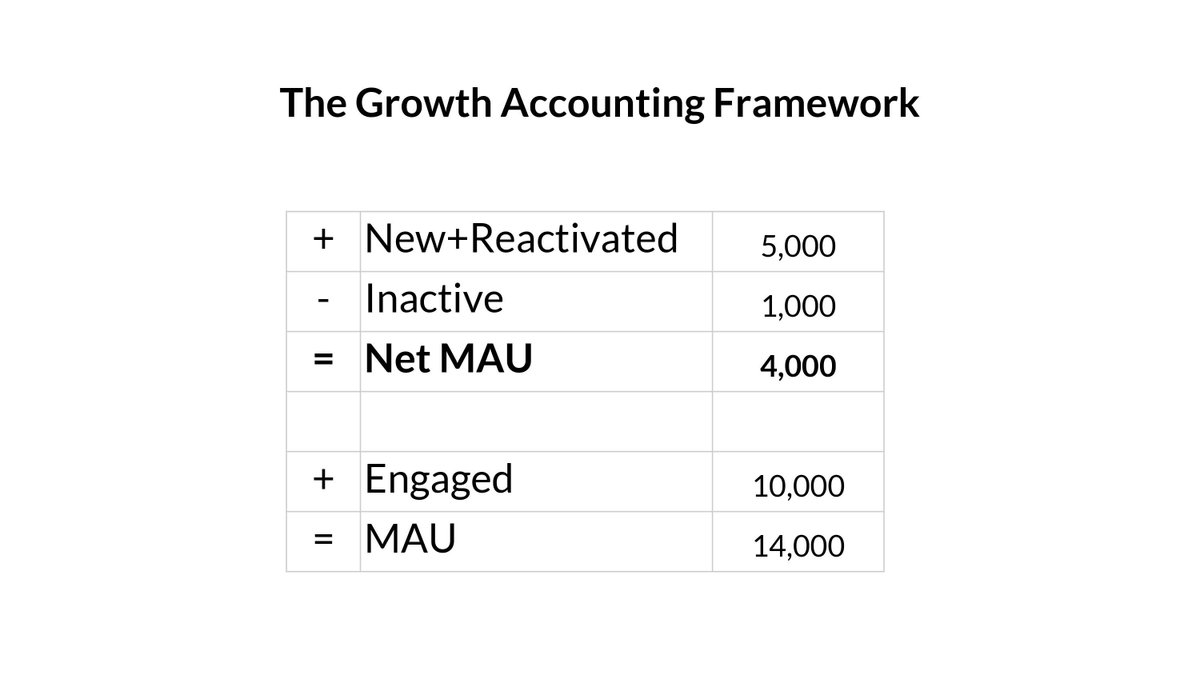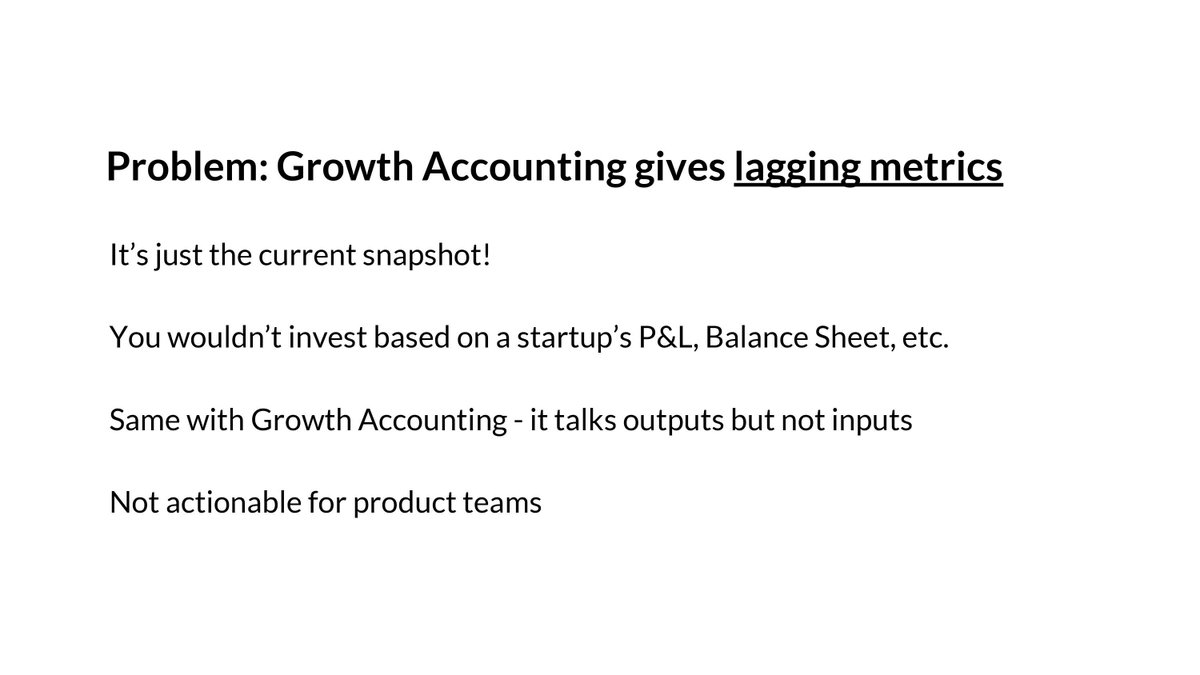“Amateurs talk strategy, professionals talk logistics.” A grand vision is great, but the best companies are often focused on challenging but tangible near term goals. If a founder can’t move from vision to on the ground details quickly...bad sign
Have been lucky to meet with or study hundreds of companies in 2021.
Here's an ongoing list of company attributes that I find interesting...
“Amateurs talk strategy, professionals talk logistics.” A grand vision is great, but the best companies are often focused on challenging but tangible near term goals. If a founder can’t move from vision to on the ground details quickly...bad sign
To borrow a concept from @nikiscevak, it is thrilling to find someone doing their “life’s work.” When someone's personal path lines and formative experiences line up with the problem a company is solving, I get excited. "Life's work" is a source of perseverance
Well managed internal communication is a huge advantage.
This is often evident
1) in internal routines, words and phrases with unique meaning
and
2) consistent answers to questions about the company’s plans from a variety of different insiders
I like when management teams view jobs inside their business as a product to be built, designed, and sold like any other product.
Everyone is struggling to hire great talent, so a differentiated strategy in hiring matters as much as anything.
Companies that turn useful information from occasionally measured to constantly measured.
This could be software security compliance (@trustvanta) or pantry inventory levels (@bottomless)
Streaming data unlocks new product possibilities
@gabrielleydon told me his favorite investing scenario is when a product is constantly breaking, but demand STILL grows like crazy. This tells you that there’s some real potential innovation happening.
I love when a company repurposes internal tools to serve external customers. Often this applies only to older companies or those in a “second act.” But the path required to have built a useful internal tool is often what allows for a unique product.
The easiest way to be the best in a category is to create it. We love when we observe outsiders trying to compare a company to others via analogy, but hearing lots of different, unrelated companies used in those analogies. This is often a sign of a new category
A company like @stripe offers to complete a simple job (accept a payment), but hides and solves the insane complexity behind that simple task.
This usually manifests as API-first companies in software, which are among my favorite.
I love @scottbelsky observation that in the "first mile" of a product experience, customers are lazy, vain, and selfish.
Bob Pittman taught me that quality is great, but increased customer convenience is more often the story behind successful products
A concept learned from @chetanp and Dave Duffield. Companies which carefully pick a small batch of early customers (usually in B2B) and work with them for an insanely long time (1-3 years) to mature a product before opening to more new customers.
Whether a company is actively fighting to change some ruleset or regulation, or taking advantage of a recent change, companies operating near a regulatory unlock typically face less competition.
This is the @costco principle. In every company--especially one that is working--it is tempting to do more. Companies that stick to one major thing (like constantly improving Costco warehouses and membership value) can become among the most enduring franchises.
I love @photomatt description of companies like Salesforce that build whole worlds:
https://t.co/YFUanigHsk

I deeply respect leaders who focus on unique ways to reach their customers.
So many problems are ultimately marketing and messaging problems, yet we tend to look down on sales and marketing relative to product.
GTM should be developed like product.
Any time a company is paid early or up front, I'm interested. It signals clear demand from customers, and indicates that a company may be very capital efficient.
This can be dangerous, too, but its a feature that I find rarely despite much searching.
My favorite element of culture is a focus on service.
This shows up as fast response times, lack of defensive behavior or blaming, and constant learning via productive feedback.
Leaders tend to be tough + fair, hardworking, and humble, not flashy
You May Also Like
Like company moats, your personal moat should be a competitive advantage that is not only durable—it should also compound over time.
Characteristics of a personal moat below:
I'm increasingly interested in the idea of "personal moats" in the context of careers.
— Erik Torenberg (@eriktorenberg) November 22, 2018
Moats should be:
- Hard to learn and hard to do (but perhaps easier for you)
- Skills that are rare and valuable
- Legible
- Compounding over time
- Unique to your own talents & interests https://t.co/bB3k1YcH5b
2/ Like a company moat, you want to build career capital while you sleep.
As Andrew Chen noted:
People talk about \u201cpassive income\u201d a lot but not about \u201cpassive social capital\u201d or \u201cpassive networking\u201d or \u201cpassive knowledge gaining\u201d but that\u2019s what you can architect if you have a thing and it grows over time without intensive constant effort to sustain it
— Andrew Chen (@andrewchen) November 22, 2018
3/ You don’t want to build a competitive advantage that is fleeting or that will get commoditized
Things that might get commoditized over time (some longer than
Things that look like moats but likely aren\u2019t or may fade:
— Erik Torenberg (@eriktorenberg) November 22, 2018
- Proprietary networks
- Being something other than one of the best at any tournament style-game
- Many "awards"
- Twitter followers or general reach without "respect"
- Anything that depends on information asymmetry https://t.co/abjxesVIh9
4/ Before the arrival of recorded music, what used to be scarce was the actual music itself — required an in-person artist.
After recorded music, the music itself became abundant and what became scarce was curation, distribution, and self space.
5/ Similarly, in careers, what used to be (more) scarce were things like ideas, money, and exclusive relationships.
In the internet economy, what has become scarce are things like specific knowledge, rare & valuable skills, and great reputations.















